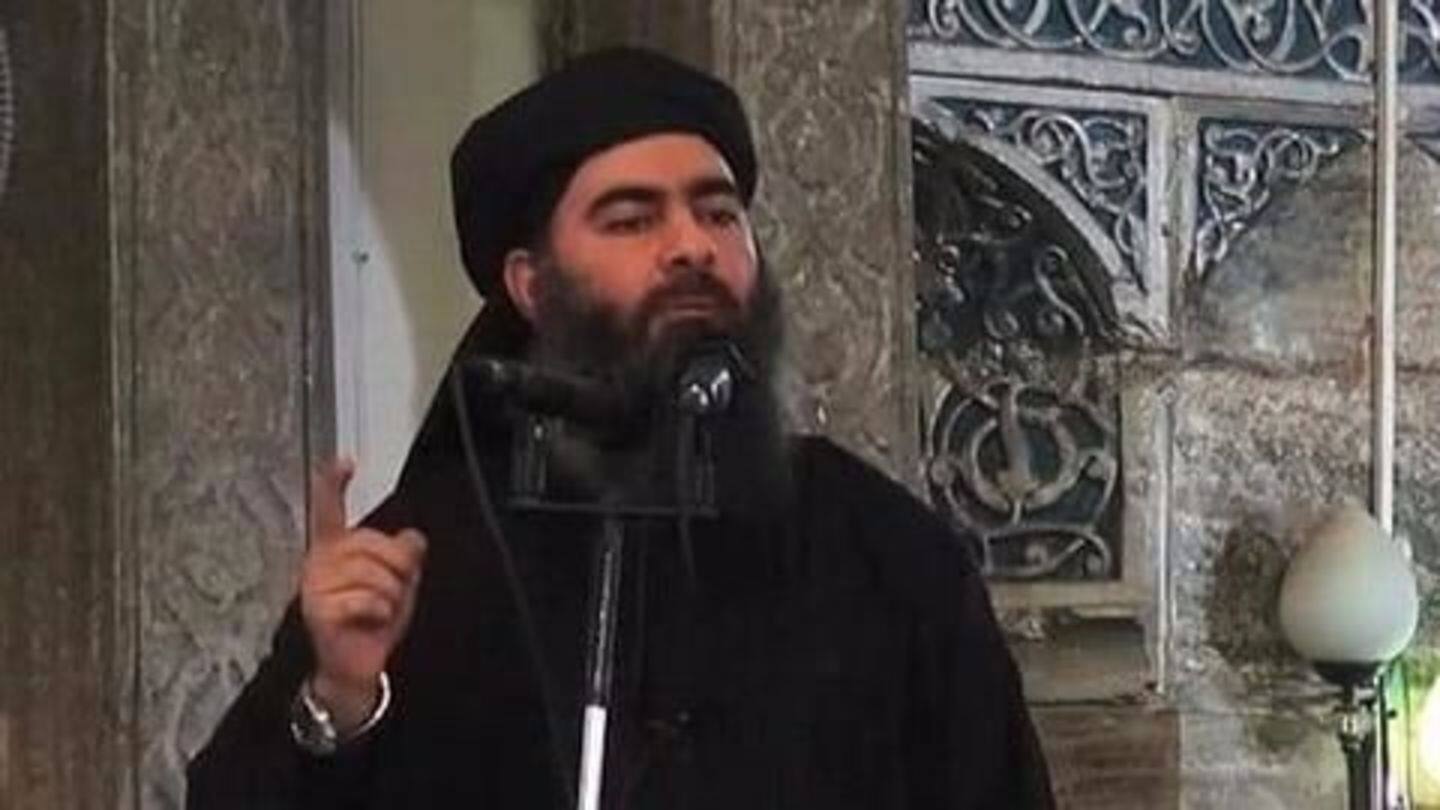
ISIS leader Baghdadi's journey from being a 'caliph' to fugitive
What's the story
ISIS leader Abu Bakr al-Baghdadi is on the brink of losing Mosul in Iraq and Raqqa in Syria, the two strongholds of his 'caliphate.' Officials and experts said Baghdadi is currently on the run and it may take years before he is captured or killed. In this timeline, we look at how Baghdadi went from anonymity to being a self-proclaimed 'caliph' to a fugitive.
Early life
Who is Abu Bakr al-Baghdadi?
Abu Bakr al-Baghdadi was born Ibrahim al- Samarrai in 1971 near Samarra, Iraq. He grew up in a religious family, holds a bachelor's degree, a master's degree and a PhD in Islamic Studies. In 2003, he joined Salaafi jihadist insurgency when the US-led coalition invaded Iraq. He was captured by US forces in 2005 but released they considered him an "unremarkable" civilian target.
History
Baghdadi separated from al-Qaeda to form ISIS in 2010
Baghdadi emerged as the al-Qaeda leader in Iraq but he parted ways with the organization to form the Islamic State of Iraq and the Levant (ISIS) in 2010. His reputation as a ruthless battlefield tactician made him popular among young jihadists. Under him, ISIS went from relative anonymity to the single most powerful terrorist organization in the world.
Powerful
Baghdadi declares himself 'caliph' in June 2014
In June 2014, after ISIS captured the major Iraqi city of Mosul, Baghdadi proclaimed himself "caliph" or leader of all Muslims. In 2015, at the height of its power, ISIS-controlled territory ran from northern Syria through towns and villages across the Tigris and Euphrates valleys, all the way till Iraqi capital Baghdad's outskirts. ISIS has inspired several terrorist attacks across the world.
Information
ISIS reign of terror on occupied territories
ISIS enforced its extreme version of Islamic law on the millions of people living in territories it controlled. Non-Sunni Muslims and Sunnis who didn't agree with its diktats on appearance, behaviour and movement were punished with whippings or were publicly executed.
ISIS retreats
Expert says 'Baghdadi can no longer claim caliph title'
ISIS has retreated after a number of local, regional and international forces spurred by a series of terrorist attacks around the world launched military operations against it. ISIS faces defeat at its capital cities of Mosul in Iraq and Raqqa in Syria. "With no land to rule openly, he [Baghdadi] can no longer claim the title caliph," said ISIS expert Hisham al-Hashimi.
Fugitive
Baghdadi 'a man on the run', has fewer supporters
Hashimi said Baghdadi "is a man on the run and the number of his supporters is shrinking as they lose territory." Baghdadi is reportedly steering clear of both Raqqa and Mosul. Hashimi said Baghdadi is sticking to sparsely-populated areas located along the Syria-Iraq border where drones and strangers can be easily spotted. He moves in ordinary cars with just a driver and two bodyguards.
Details
Baghdadi doesn't use phones, communicates through trusted couriers, fears betrayal
Baghdadi doesn't use phones and relies on a handful of trusted couriers to communicate with aides. One of his biggest fears is that someone around him may betray him for the $25 million bounty placed on his head by the US. Whether captured or killed, Baghdadi's "legacy and that of ISIL [ISIS] will endure unless radical extremism is tackled," a Kurdish official said.